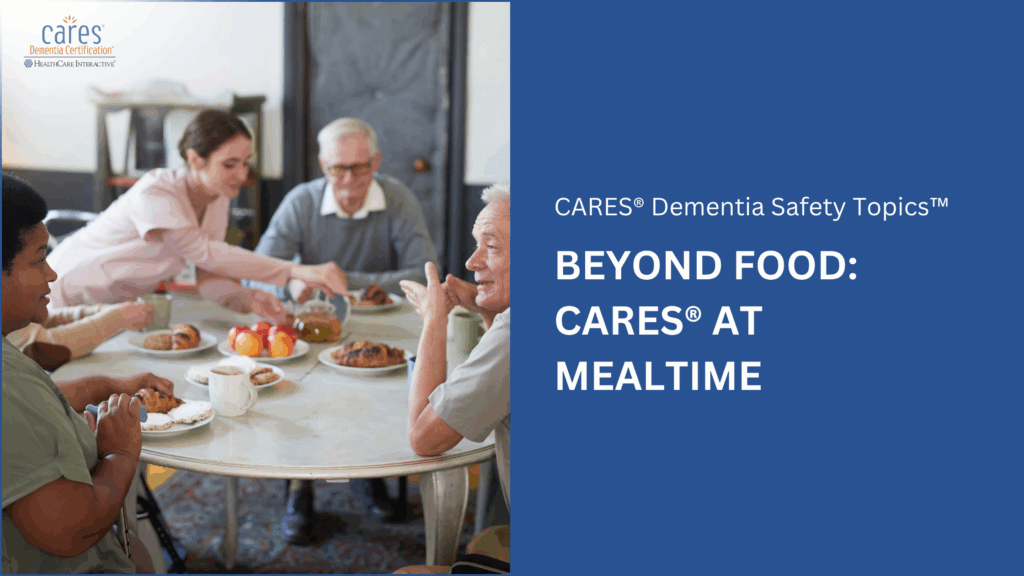When caring for someone with dementia, mealtimes can often feel like a challenge. But with the CARES® Approach, we are reminded that eating and drinking “well” isn’t just about nutrition. Mealtime is far more than a routine—it’s a meaningful experience, a moment of connection, and often the highlight of the day for many people.
For individuals living with dementia, especially in the later stages, engaging during mealtimes becomes not only important but essential. Here’s why—and how—you can make those moments truly count.
Why Engagement at Mealtime Matters
We often forget that food brings people together. It’s not just about what’s on the plate—it’s about the environment, the company, and the comfort that mealtimes offer. For those with dementia, these moments help preserve dignity, encourage interaction, and even stimulate positive memories.
When caregivers create a thoughtful, engaging mealtime environment, it can:
• Reduce agitation and confusion
• Encourage better appetite and hydration
• Promote a sense of normalcy and belonging
• Foster emotional connections
Simple Ways to Create a Meaningful Mealtime Environment
Here are some practical and compassionate ways to enhance the mealtime experience for someone with dementia:
1. Sit Besides, Not stand over
Instead of standing over the person while feeding them, sit down and stay at their eye level. This small change can shift the experience from clinical to caring. Standing over someone can feel impersonal or even demeaning, while sitting shows presence, respect, and attentiveness.
2. Make It a Conversation, Not a Task
Don’t just serve the food—talk about it. Describe the textures, aromas, or flavors. Ask what they liked eating in the past. Even if verbal responses are limited, your tone and smile offer reassurance and warmth. Mealtimes are opportunities to connect, not just complete a task.
3. Curate the Environment
Consider placing the person with others they are comfortable around—perhaps friends, family, or familiar caregivers. If that’s not possible, gentle background music can create a calming and pleasant atmosphere. These sensory touches can turn an ordinary moment into something memorable.
4. Focus Your Attention
If you’re helping someone eat, focus on them. Avoid talking over or around them with others in the room. A divided conversation may make the person feel excluded or overlooked. Even a quiet meal can feel meaningful when you’re fully present with them.
Every mealtime is a chance to nourish not just the body, but also the heart and soul. Using the CARES® Approach—focused on Connection, Attention, Respect, Engagement, and Support—can help transform meals into comforting and enriching experiences for people with dementia.
Remember, it’s not just about food—it’s about how we share it.
Make mealtimes more meaningful. Learn how to connect, engage, and care with confidence using the CARES® Approach. Get 10% OFF any training or certification program with code BeautifulAugust at checkout. Offer valid through Aug 31, 2025.

